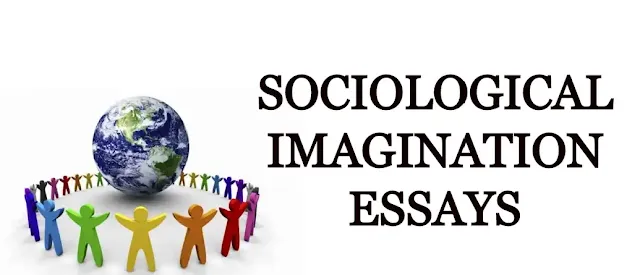
Sociological Imagination Essays
Introduction:
Sociological imagination, a concept introduced by sociologist C. Wright Mills, invites individuals to perceive the intricate connections between personal experiences and broader societal structures. It encourages a perspective that transcends individual struggles and recognizes the influence of social, economic, and political forces on personal lives. This essay delves into the essence of sociological imagination, exploring its significance in deciphering the interplay between personal troubles and public issues.
Defining Sociological Imagination:
Sociological imagination involves the ability to connect personal experiences to social structures and historical contexts. It transcends an individualistic perspective, inviting individuals to view their lives as part of a larger social tapestry shaped by historical, cultural, and institutional forces.
Linking Personal Troubles to Public Issues:
At the core of sociological imagination is the recognition that personal troubles often find roots in broader public issues. What may initially seem like an individual struggle – such as unemployment, mental health challenges, or educational barriers – is intricately linked to societal structures, policies, and historical legacies.
Understanding Historical and Cultural Context:
Sociological imagination prompts individuals to consider the historical and cultural contexts that shape their experiences. It invites reflection on how societal norms, values, and historical events contribute to the formation of personal identities and challenges.
Examining Social Institutions:
Institutions such as education, family, economy, and government play a significant role in shaping individual experiences. Sociological imagination encourages the examination of these institutions, recognizing how they influence and structure the opportunities and constraints individuals encounter.
Class, Race, and Gender Dynamics:
Sociological imagination emphasizes the importance of understanding how social categories such as class, race, and gender intersect with personal experiences. It unveils the ways in which systemic inequalities and privileges contribute to shaping individual life paths.
Global Perspective:
Sociological imagination extends beyond national boundaries, inviting individuals to adopt a global perspective. It emphasizes the interconnectedness of societies worldwide and highlights how global forces impact individual lives, from economic globalization to cultural diffusion.
Social Change and Activism:
Sociological imagination is a catalyst for social change and activism. By understanding the societal roots of personal troubles, individuals are empowered to advocate for systemic transformations, challenge unjust structures, and contribute to the betterment of society.
Media and Cultural Influences:
Media and culture significantly shape perceptions, values, and behaviors. Sociological imagination encourages the examination of media narratives and cultural representations, recognizing their impact on shaping collective understandings of personal troubles and public issues.
Intersectionality:
Sociological imagination aligns with the concept of intersectionality, acknowledging the complex intersections of various social categories and identities. It underscores the need to consider the interplay of multiple factors when analyzing individual experiences within a broader societal framework.
Educational Empowerment:
Embracing sociological imagination in education empowers individuals to critically analyze societal structures. It fosters a mindset that goes beyond rote learning, equipping students with the ability to question, challenge, and engage in lifelong learning about the complexities of society.
Conclusion:
Sociological imagination stands as a transformative lens through which individuals can perceive the intricate dance between personal experiences and societal structures. By cultivating this perspective, individuals are empowered to navigate their lives with a deeper understanding of the broader forces at play. Sociological imagination becomes a tool for empowerment, advocacy, and a richer comprehension of the complex web that connects personal troubles to public issues.
Also read:- cleanliness is next to Godliness Essay
Comments
Post a Comment